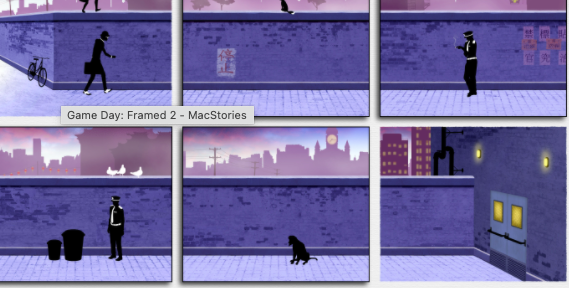Time loops provide interesting meta-narratives by forcing the audience to be more mindful of how they perceive the passage of time. In telling stories, we typically recount events in a linear sequence with some variation for flashforwards or flashbacks. This mirrors our own perception of time, continually moving forward except in our own memories. Yet time loops push back on this norm by complicating cause and effect relationships. Events no longer can be understood by relying on our preconceived notions of linear time. Drawing on this tool, authors can introduce interesting meta themes and comment on normal game mechanics.
When applied to movies like Palm Springs, the existence of a time loop usually taps into nihilism and asks important questions of where we find meaning in our lives. For Nyles, the unwilling participant in a time loop, the lack of impact on his surroundings deprives him of meaning and makes him a passive observer of his surroundings. As an audience separated from the action, us viewers are similarly devoid of the power to impact the plot, craving resolution to the plot. To truly take these narratives to the next level, a time loop movie could end without (typical) resolution, fully depriving audiences of the ending they expect. The Time Traveler’s Wife does a good job with this during its story (no spoilers here!!) The interactivity in games, on the other hand, cause time loops to acquire a different meta-narrative within their respective genre.
When applied to gameplay, time loops comment on character death by making players more conscious about restarting levels as a core game mechanic. Consider any Mario game. When you die, you are restarted at the beginning of the level with new knowledge about what obstacles stand in your way. Akin to a time loop, actions in a subsequent run are informed by those in the player’s past but Mario’s future, further complicating cause and effect relationships. A non-meta game like Mario only recognizes the existence of this phenomenon by noting that the player lost a life and must restart from the beginning of the level. Besides this, there is no other interaction with time as a game mechanic. It is a nondiegetic experience, outside of game narratives and player control.
The introduction of time loops as a gameplay mechanic transforms time into a diegetic operator experience by allowing players to interact with past play-throughs. In Save the Date, players must prevent their date from suffering a grisly death. Each playthrough, restarting at the beginning of the date, you gain more knowledge about the risks to her life and make adjustments accordingly. Yet at the end of the game, you are told that there is no final end-state besides closing the game since the time loop cannot be completely avoided with a “happy ending.”

The game Framed takes this another step further by making the sequencing of events an additional mechanic. During gameplay, players read through a comic about a character escaping from pursuers. Yet if they watch the scenes unfold without any actions, the main character will be caught. The scene plays continually on repeat in a time loop, but players are allowed to reshuffle the frames into a new order to create a viable escape path. In this instance, the game pushes back against normal reading techniques – reading left to right or right to left – by forcing players to read out of order to find the correct sequence of events. Players in their first playthrough would not be faulted for letting the scene unfold from left to right without making any revisions. How we read and how we perceive cause and effect are suddenly game mechanics in an otherwise clear-cut visual narrative.


This was a really interesting post! Time loop games in particular, as opposed to movies or books, really do seem to get at something that is *really* experienced in games, as opposed to movies or books where it’s a pure fantasy–or, at most, an extension of an everyday feeling of deja vu. I wonder how this notion could be expanded to include games that basically expect you to replay them, like Undertale or Doki Doki Literature Club? These aren’t quite time loops, but you *are* expected to reset the world and try again, over and over, and the game–to some extent–expects or comments on that. What kind of meta-narrative do these games form, end the end? Overall, really interesting post!
Comparing time-loops in games to time-loops in movies, I wonder how games may have spread their influence to other mediums. The key concept of taking knowledge and re-applying it, central to a time-loop, has long existed in film, but recently, it seems to be applied in more and more “game-like” fashions. For example, comparing something like Groundhog Day, which focuses more on using the time-loop for character drama, to a film like Edge of Tomorrow, which instead uses the loop largely to drive story through improving action, a concept that seems like a much better fit for how games traditionally use time-loops to improve the player’s skill and let them advance further each time.